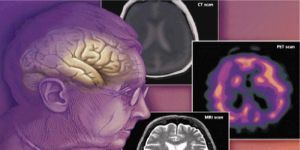Alzheimer's Agitation Eased by Citalopram, But With Severe Adverse Effects
In a recent clinical trial, Celexa (citalopram) reduced agitation in patients with probable Alzheimer's disease (AD) compared to placebo, but the drug also produced severe cognitive and cardiac adverse events that prescribers must consider.

In a recent clinical trial, Celexa (citalopram) reduced agitation in patients with probable Alzheimer’s disease (AD) compared to placebo, but the drug also produced severe cognitive and cardiac adverse events that prescribers must consider.
For their study published Feb. 19, 2014, in the Journal of the American Medical Association, Anton Porsteinsson, MD, and colleagues at the University of Rochester School of Medicine and Dentistry, in Rochester, NY, randomized 186 probable AD patients with clinically significant agitation to citalopram or matching placebo for 9 weeks, starting with a 10 mg daily dose that was titrated to 30 mg daily over 3 weeks. All participants also received a psychosocial intervention during the study period.
The agitation subscale of the 18-point Neurobehavioral Rating Scale, the modified Alzheimer Disease Cooperative Study-Clinical Global Impression of Change scales, and the Activities of Daily Living measure were among the tools utilized to assess patient outcomes.
According to the investigators, the patients who received citalopram showed significant improvement in agitation compared to those who received placebo. The investigators also reported improved caregiver distress among the citalopram group.
However, the participants who received citalopram showed worsening cognition and prolonged QT interval on an electrocardiogram, and the researchers noted those cognitive and cardiac adverse events might limit the drug’s practical application at a 30 mg dosage form.
After the trial began, the US Food and Drug Administration (FDA) warned that citalopram dosages above 20 mg might be associated with QT interval prolongation, which was found to be a significant in this trial. For those reasons, the authors recommended clinicians treating agitated AD patients to keep the daily dosage below 20 mg, even though their trial did not have enough power to establish clinical benefit at that lower dose.